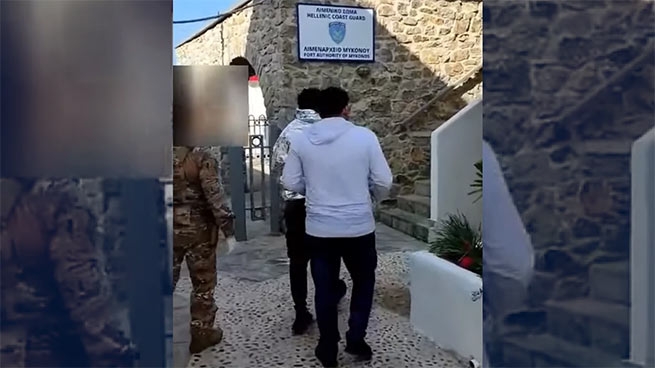Three people were killed and 12 were missing when a boat carrying migrants capsized off the island of Mykonos early Friday.
Two people have been rescued so far and were seen swimming in an area northeast of Mykonos – one Syrian and one Palestinian. They were transported to safety by the Greek Coast Guard. Also removed from the water 3 bodies (1 man and 2 women).
Currently, a search and rescue operation is underway, two coast guard boats, one Super Puma helicopter, as well as ground equipment are operating in the area of the incident.
Survivors told the Coast Guard that there were 17 people on board, including 4-5 women and a 7-year-old girl. They further reported that they had left Turkey and were on their way to Italy.
The prevailing weather conditions are northerly winds of force 5 on the Beaufort scale. The average water temperature is about 15°С, up to 17.5 during the day, at night it drops to 13°С. At this temperature, an ordinary untrained person can stay in the water for no more than 3 hours.
The main causes of human death in cold water:
- Hypothermia, since the heat produced by the body is not enough to compensate for heat loss.
- Death can occur in cold water, sometimes much earlier than hypothermia sets in, the reason for this may be a kind of “cold shock”, sometimes developing in the first 5-15 minutes after immersion in water.
- Respiratory dysfunction caused by massive irritation of skin thermoreceptors.
- Rapid loss of tactile sensation. Being close to a lifeboat, a person in distress sometimes cannot climb into it on their own, as the temperature of the skin of the fingers drops to the temperature of the surrounding water.
What does a person experience when he suddenly finds himself in ice water:
- catches the breath;
- head as if squeezed by an iron hoop;
- the heartbeat increases sharply;
- blood pressure rises to alarming limits;
- the muscles of the chest and abdomen reflexively contract, causing first exhalation and then inhalation. An involuntary respiratory act is especially dangerous if at this moment the head is under water, because a person can choke;
- trying to protect itself from the deadly effect of cold, the body turns on the reserve system of heat production – the mechanism of cold shivering;
- heat production increases sharply due to the rapid involuntary contraction of muscle fibers, sometimes three to four times. However, after a while, even this heat is not enough to compensate for heat loss, and the body begins to cool. When the skin temperature drops to 30°C, the shivering stops, and from that moment on, hypothermia begins to develop at an increasing rate. Breathing becomes less frequent, the pulse slows down, blood pressure drops to critical numbers.







More Stories
UK: controversial bill on deportation of migrants to Rwanda passed
Chaos in Paris due to Afghan demonstration
Why only a few Ukrainian refugees in Germany found work (video)